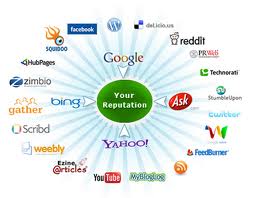I guess it’s fairly clear by all of my previous posts how much I value Twitter. You’d think I was an addict, monitoring my stream all the time.
I normally spend about 20 minutes a day tweeting, retweeting, replying to tweets, following new people, etc.
I spend about the same amount of time for each of my clients, unless they’re paying for additional monitor time. So I swear, I’m not obsessed.
It’s just that each week, before I’m about to sit down and write my blog post, something significant happens in social media (whether for my clients or just in general) that I have to write about. It just so happens that for the last month, everything remarkable has been happening on Twitter.
Let me explain the latest scenario. One of my clients owns a restaurant. I was logged onto his Twitter handle and I noticed that someone had tweeted about their experience at this restaurant.
She tweeted that the wine and food were great, but the service was horrible. Ouch. Of course I had to respond right away.
I responded as the restaurant, apologizing for her experience, and hoping I could get more details on the matter so I can pass it along. Instead of discussing it over Twitter (which was too public for this conversation), I gave her my email address and asked if she was willing to give me specifics.
She did so right away. She said that she was there with a group, and while the food and wine were great, the wait was not worth it. I quickly responded, apologizing for her experience, thanking her for her constructive feedback, and giving her a gift certificate in hopes that she would try the restaurant again.
She quickly responded, thanking me for tending to the situation so promptly and that she would be happy to give the restaurant another chance.
 So what happened here? Well, I’ll tell you: Reputation Management.
So what happened here? Well, I’ll tell you: Reputation Management.
Although she tweeted her disappointment with her experience, the restaurant (me) responded right away in a positive tone, and asked her to return with a generous gift card.
What would have happened if she had tweeted and the restaurant wasn’t listening?
1) Her tweet would have reached all of her followers (over a few thousand) without a reply from my client
2) Her followers, some of whom are her friends and trust her judgment, probably would have thought negatively of this restaurant after seeing that
3) She would probably not return because she didn’t think it was worth the wait
4) She would tell friends about her experience (don’t forget the rule of ten here), which would likely discourage them from trying the restaurant
What happened instead?
1) She knows the restaurant cares enough about their success to be active in social
2) She’s grateful that the restaurant was so quick to respond to her disappointment
3) She will return to the restaurant
4) Her next experience will hopefully be a good one, and she might tweet about it as well as encourage her friends to go in the future
5) She was responded to before she could turn to a review site, like the unethical Yelp, to vent her frustration
So you see? If you’re listening, people know it and they appreciate it. Especially if you act on others’ feedback. You acquire a big fan in this way and hope that the positive word goes viral.
Have you had any experiences like this with Twitter?


